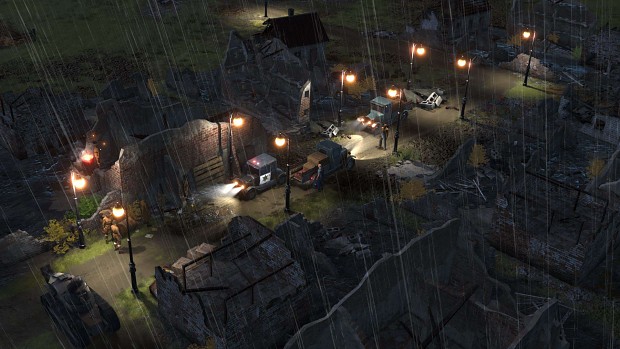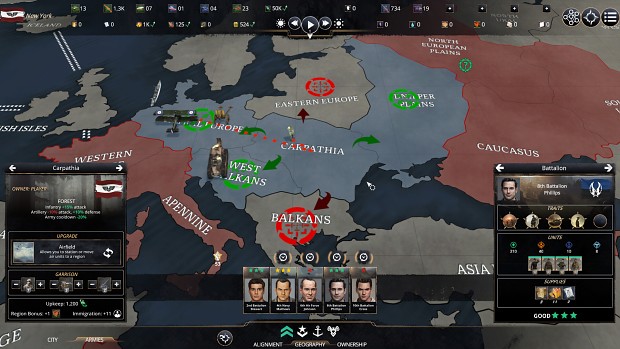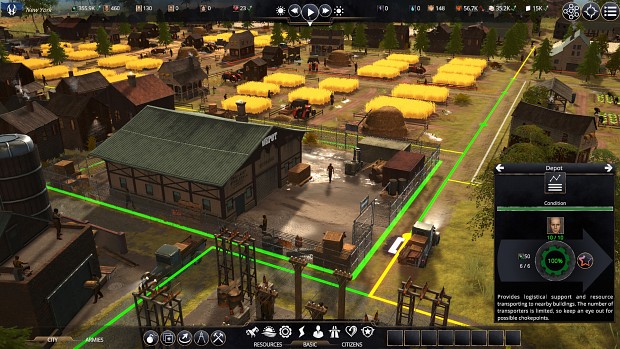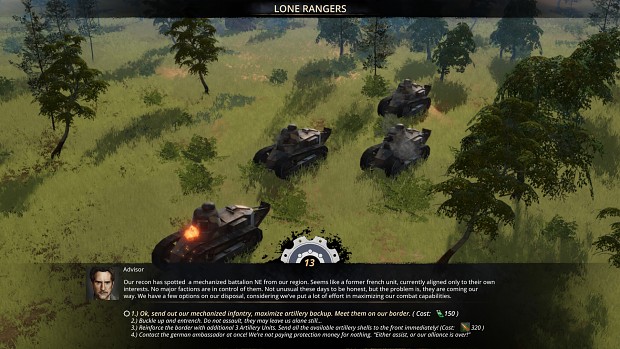Let's start off with a clear picture of what the titles says and then go over each in more detail.
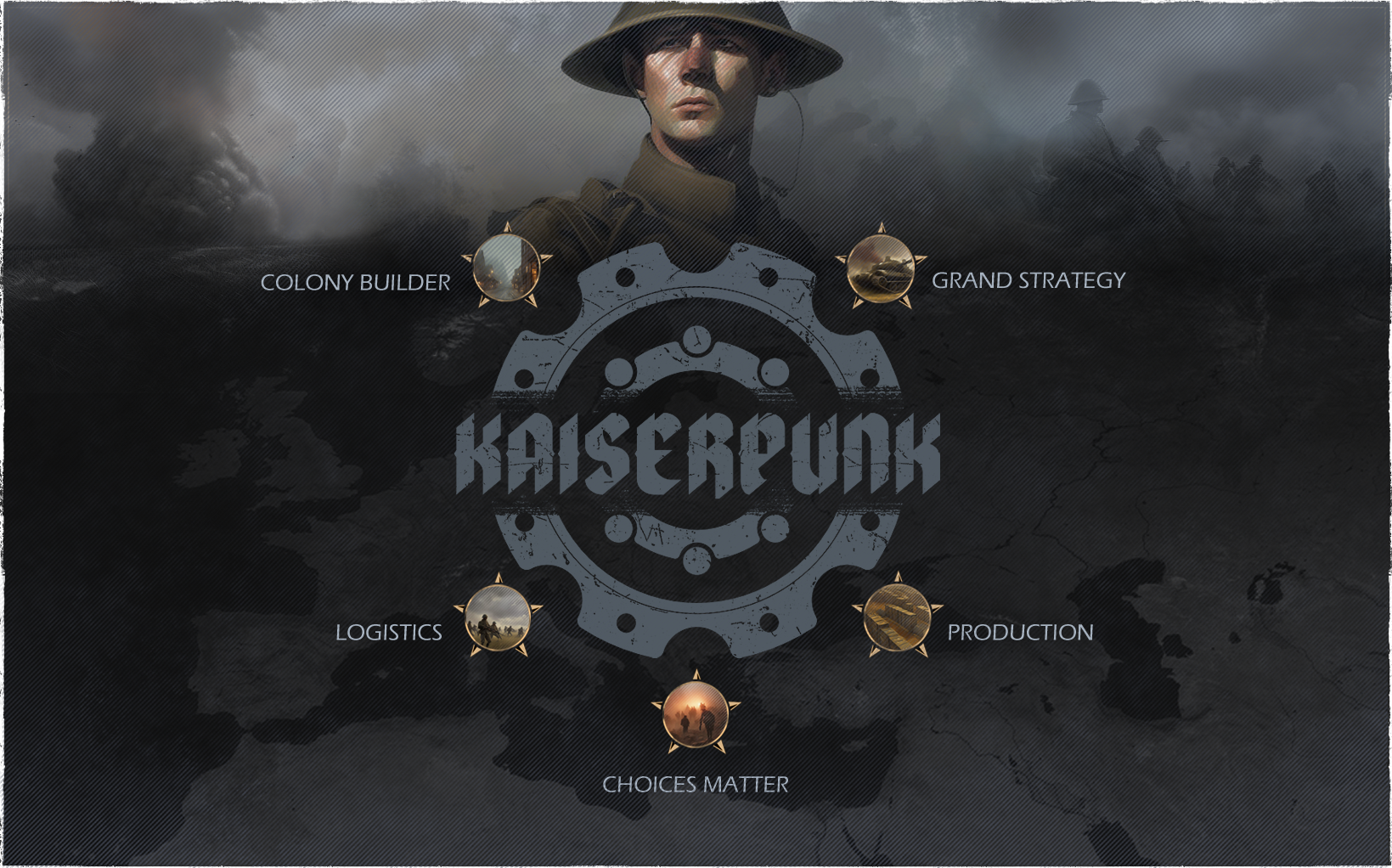
City builder
This point should be rather obvious in and of itself, but please allow me to elaborate further. One of the two main genres that Kaiserpunk is combining is city-building. You will be building up, expanding and managing your city to facilitate more production of goods and services. You’ll also need housing for the workforce that your city will need. These same workers also have some basic needs that need to be fulfilled. Production kicks in once again. Nothing will come for free or even cheap. You need to organize everything.
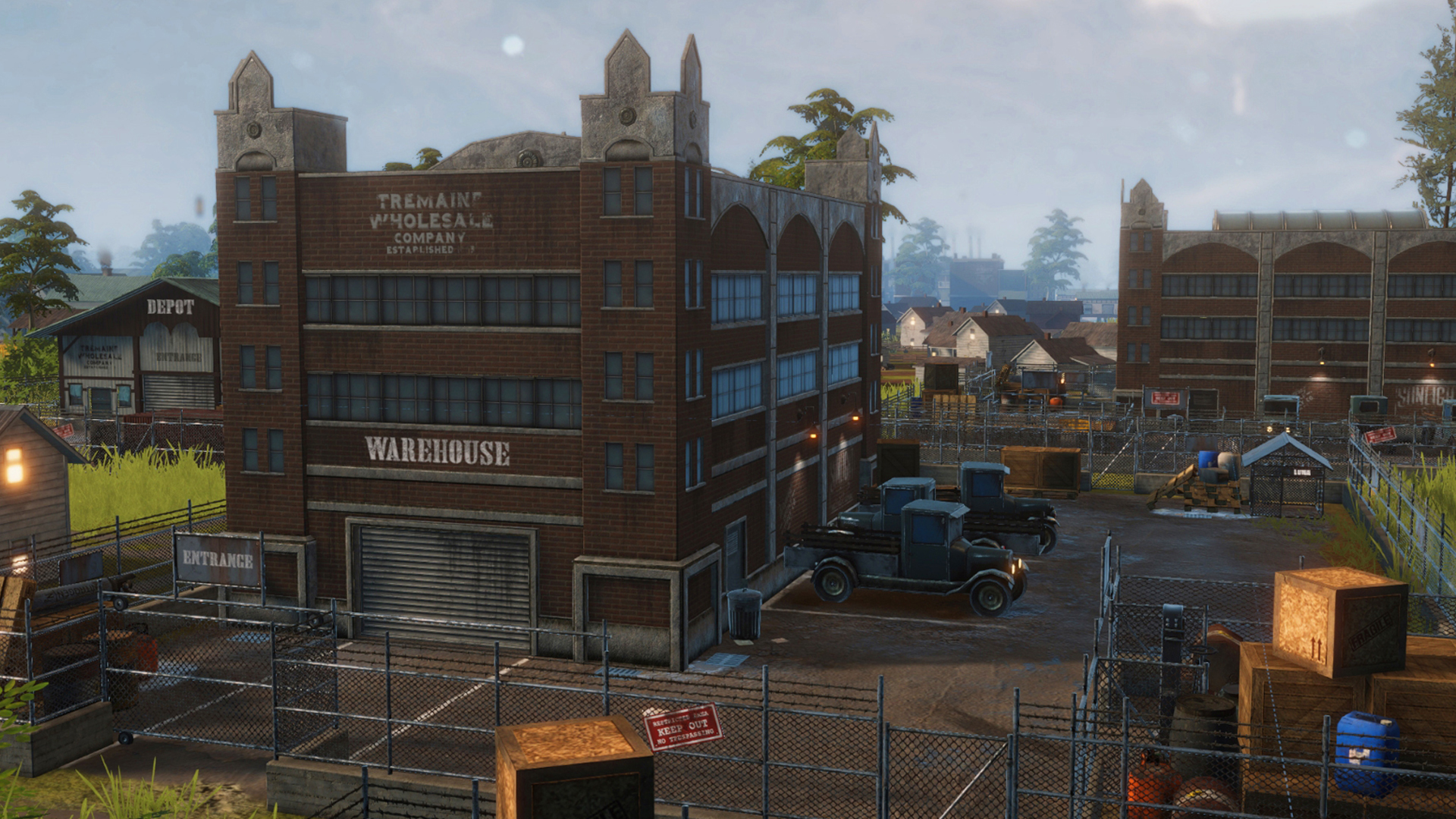
Another thing desired by your workforce are luxuries. Not getting those will not make them leave your city. The world is not a nice place in Kaiserpunk, so you don’t have to be afraid that your residents will run away from you, but providing them more than the bare minimum will make them happier. Happier citizens spend more. More spending means more cash in the city treasury… and you’ll need cash. Nothing is free.
And finally, the third thing desired by the people are public services. These are your standard police force, firefighters, education and health facilities. Besides providing what they usually do (public safety, education, health…) public services are also frequent targets and/or triggers of random events (stories). A simple, but good example is a Clinic. You can bet you’ll have disease outbreaks sooner rather than later if your people’s health isn’t taken care of.
Grand strategy
The second genre in this mix of ours is grand strategy. And that’s not just for show or to have a buzzword. The two genres are deeply intertwined. The only way to have proper agency on the global scale is to have a functioning local level (the city). And once your resources start dwindling, you’ll rely on exploiting other regions of the world to increase resource income.
The grand strategy segment is completely real-time, not turn-based. We’ve noticed this question popup since we revealed Kaiserpunk so I want to make it perfectly clear. You can pause time both in your city and globally, but that’s just a convenience. Everything taking place on the world stage moves in parallel with your city.
Conquering regions is likely the most frequent activity you’ll be doing in the strategy segment. It’s far from being the only possible activity, but with over a hundred regions on display, you’re bound to take over at least some of them. Maybe a continent? Half a continent? Your choice of course.
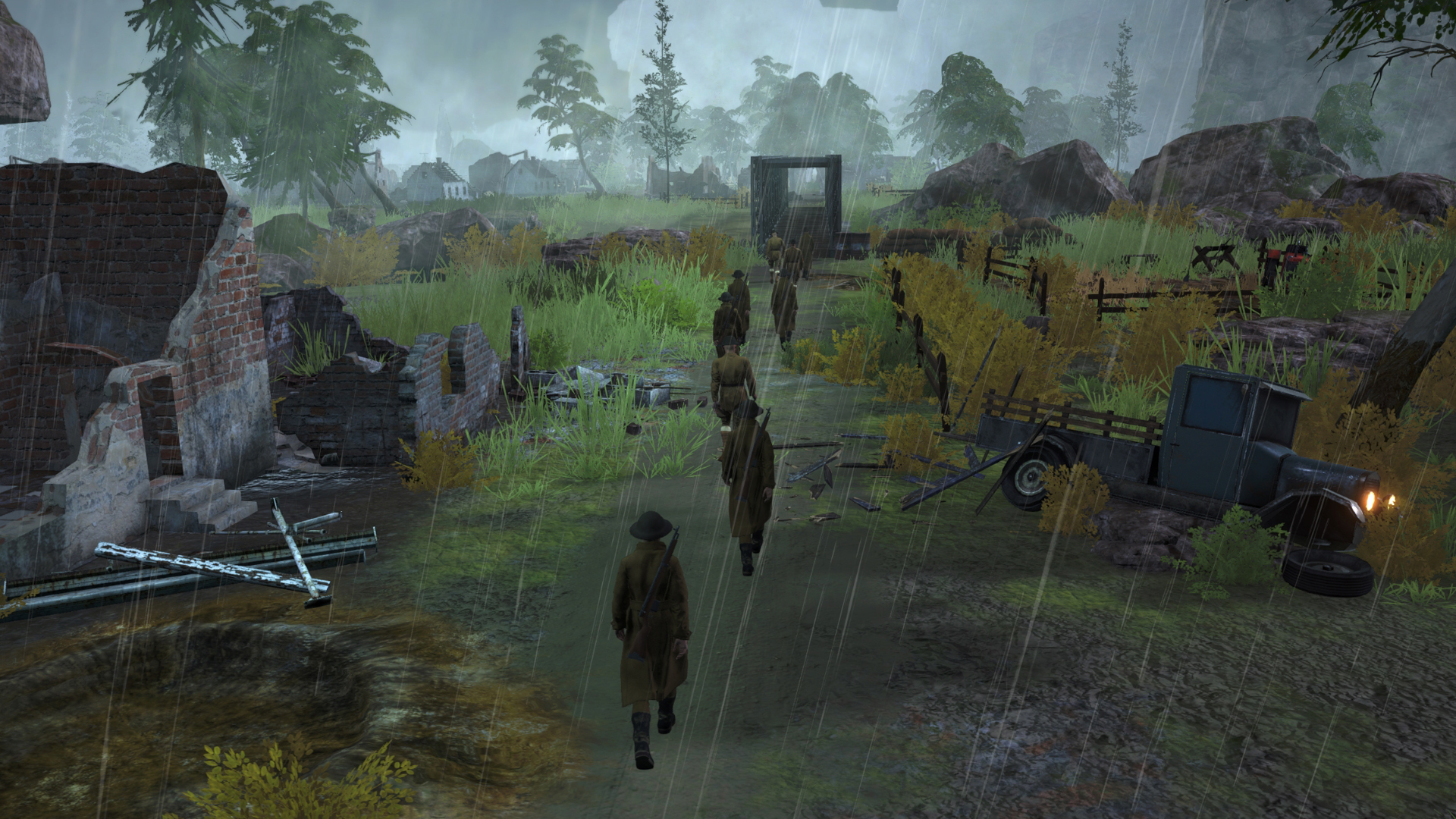
The world regions are hidden from you in the beginning. It’s the 20th century. You know what the landmass looks like, but what you don’t know is the political landscape: what groups had formed and what territory they control. These things, you’ll need to find out, either by exploration or through diplomatic dealings.
All regions allow the extraction/exploitation of some resources, but they are also used for strategic purposes (maybe you’ll want to build a Logistics centre in a region to shorten supply routes for your nearby armies for example). What a region will be used for is entirely up to you. The choice will not be easy since you can only utilize a region for a single purpose. In addition to the noted, a key element that becomes available to you from outside regions are people. You’ll need more and more workers in your city to accommodate all the current (and future) production, and the best way is to expand outwards.
Production
The third point, I suppose as expected, is production. Kaiserpunk is ALL ABOUT production. You’ll be building up and expanding your industry and agriculture from the start onward. One of your goals is to organize, optimize, maximize and expand your industrial potential. Everything needs to be produced. Your citizens’ needs, luxuries so they spend more, raw ore must be mined and then refined into intermediary resources only to be used in further production, usually culminating in the production of weapons, ammunition and/or war machines. Don’t forget that The Great war is still going on, at least officially.
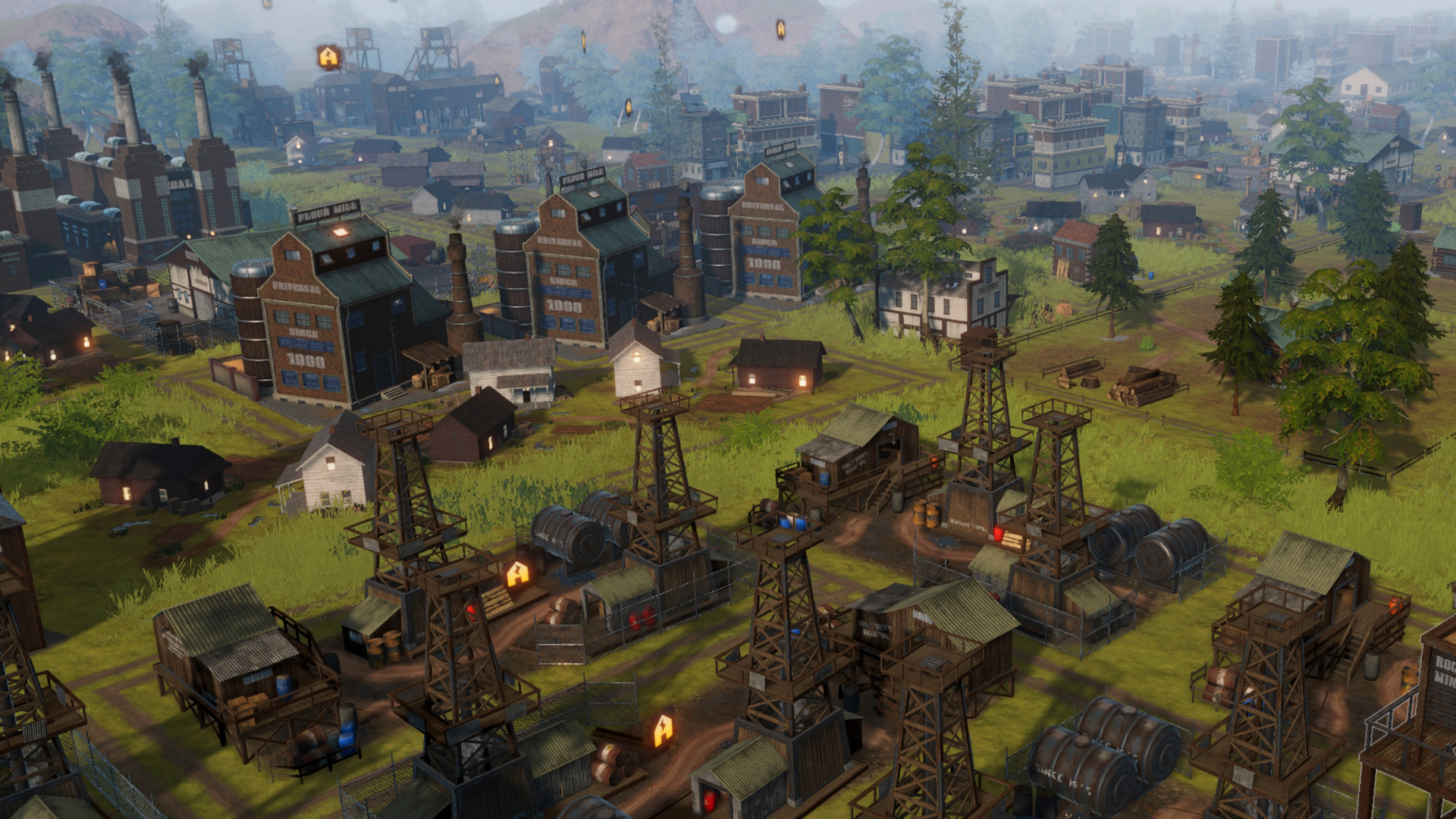
Production is facilitated in various buildings by transporting delivering resources and taking output products from them. The products are then either used in further production or used directly. A single production building, like a Factory, can be cycled to produce a number of resources, not just one. You can do this on-the-fly (you’re the governor of city state during wartime, you have the direct control of wartime economy), but of course it will take some time for the factory to switch over to the new production chain.
In essence, it boils down to the above mentioned production chains, the manufacturing, transporting and refining of resources in different buildings linked up in chains. Production chains in Kaiserpunk can get really complex. We’ve opted to limit the number of input resources for a single output, but we’ve placed no limitation (design wise) on how long a production chain can be. What this means is that it is perfectly normal to have a single production chain spanning the entire game. To explain it a bit more: a single production chain can link a low-level resources available from the beginning of the game and a late-game resource unlocked via development hours later.
As mentioned, the resources must flow through your city, which brings us to…
Logistics
Production can only work efficiently if the flow of goods is optimal. This is the primary task of depots and roads. Your task is to develop a fine-tuned network of roads and depots to make sure all the production facilities get all the goods they need at the appropriate time. The same goes for taking produced resources away. Local building stocks/inventories are limited and stockpiling resources in a factory will do you no good.
As your city-state grows and the logistics gets more complicated, you will want to optimize it as much as possible. You will have options and perhaps the most important one is chaining buildings. If FactoryA produces Brass and FactoryB requires Brass to produce Ammunition, it is a good idea to place these two buildings close by each other. The Brass (in the example) will then be directly transported from FactoryA to FactoryB, circumventing the depot. It makes production go smoother and faster. Combine that with the very long production chains explained in the previous section and you’ll soon be confronted with a nice logistics puzzle.
Logistics aren’t important only in your city. Your armies, galivanting around the globe also require supplies and it is up to you to provide. Naturally first you’ll have to either produce or trade for the needed goods. Then you have to make sure these resources can actually reach your armies in need. Making sure your global supply chains are safe and undisturbed is one of your primary concerns on the world stage. Armies that lack supplies will lose efficiency, ultimately making them practically useless.
Choices matter
The final pillar is causality, the notion of cause-and-effect. Everything you do, from how you’re building up your city, what buildings you construct, how many and where, and every action or step you take on the global map is taken into account. Every one of those can trigger a story. Stories are chains of events influenced directly (actual player choice of what action is to be taken) or indirectly (for example building a police station can stop riots in the making) by the player.
An important bit here is that stories vary in length drastically. Some will be simple: a fire breaking out in your city for example. Other stories will span years. Allow me to provide an example from-the-top-of-my-head:
A biplane flew in from a neighbouring region. It got damaged mid-air and crashed into your city. This, along with directly damaging a Munitions factory, caused the stockpile of ammunition to detonate, sending burning chunks flying in a nice radius around the building. This causes a fire that engulfs several small houses in the vicinity. While your firefighters did their best, unfortunately there were casualties in the ensuing chaos. Your standing with the neighbouring region is neutral if not amicable, and you’ve discussed the issue with them. You decided to take no further actions or request reparations.
Several in game months have passed in the meantime and you’re notified that the neighbouring region has had a massive surge in crime and outright terrorism, and surprisingly, they put the blame on you. First for political reasons, and second because the root cause of these new issues are actually your former residents, relatives of those unlucky victims of the fire that happened months ago, aggravated that you let your neighbour off the hook…
Yes, you can get dragged into conflict. It can happen. Again, this is just a simplistic example. The stories we’re writing and weaving will be as intricate and complex as we can make them. Thankfully we’ve dedicated enough production time to create the tools and the stories themselves as is needed for just such a task.
Conclusion
This turned out to be quite a bit longer text than I anticipated, but in reality Kaiserpunk is quite a bigger and deeper game than it can seem on the surface. It is our idea for the game to be rather easy-to-get-into, but then to provide you all with additional mechanics, features and content that you unearth and explore while playing. I hope this has shed some more light on what Kaiserpunk is, how it works and what it will be.
As always, follow us on the various channels to get the latest updates and more dev diaries.
📣 Stay Connected: Follow us on social media for sneak peeks, behind-the-scenes, and more!
Overseer Games
